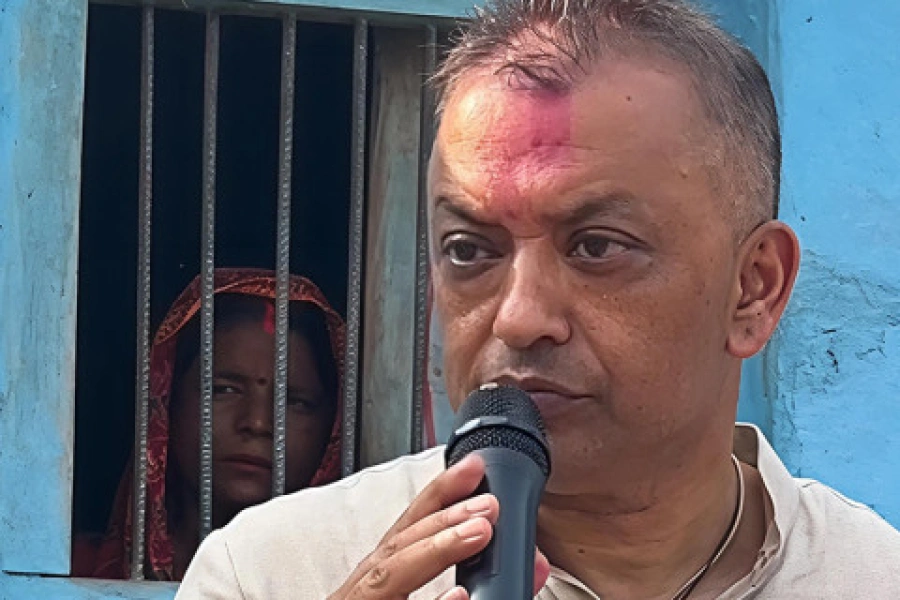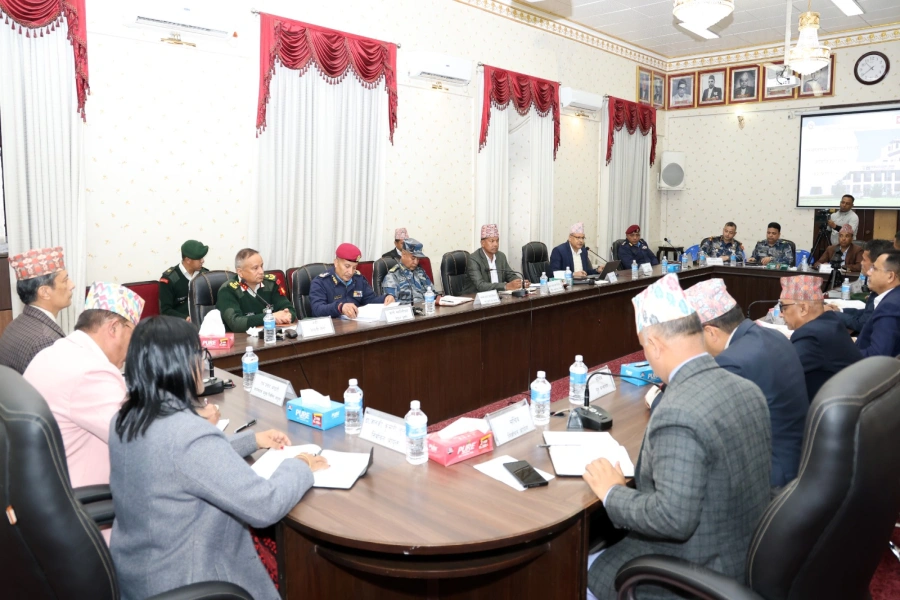KATHMANDU, Aug 13: Stakeholders believe that the Public-Private Partnership (PPP) model should be adopted to fully operate international airports. Despite billions of rupees in loans from donor agencies, the international airports in Pokhara and Bhairahawa have yet to become fully operational. Experts suggest that if the government is unable to manage international air traffic and provide necessary services, the PPP model could be a viable solution.
Former Director General of the Civil Aviation Authority of Nepal (CAAN), Triratna Manandhar, pointed out that the PPP model has not yet been implemented in Nepal but could yield positive outcomes if adopted. "If our airports are operated under the PPP model, we can achieve better results than we currently have. A private airport operator may have a more effective strategy for marketing, branding, and promoting the airport," he said.
Manandhar said, "They can give the airport more exposure than the government could. They may have more expertise in operating and managing an international airport." He added that since other countries have successfully partnered with the private sector for airport construction and management, leading to significant returns, Nepal should consider utilizing all available models.
He said that the PPP model would allow for sharing risks and resources between the public and private sectors, which could help reduce the government's financial burden. In Nepal's context, with Gautam Buddha International Airport (GBIA) and Pokhara Regional International Airports (PRIA) already in operation, a clear and transparent framework for sharing power, rules, resources, and returns would enable the private sector to effectively contribute to the development and delivery of these projects.
"Rather than completely handing over a company, offering it to a reputable international firm as a matter of policy is another viable option," said Manandhar. He said, "How the government approaches this as a policy is crucial."
Only four airports including TIA operational nationwide due to...

Manandhar further said that if a public proposal is made, better outcomes can be achieved, but this requires clear policy preparation and work carried out in a transparent and accountable manner. Stakeholders in the aviation sector have repeatedly criticized the prolonged lack of full operation at GBIA and PRIA.
Meanwhile, former Prime Minister Pushpa Kamal Dahal had also hinted at running the airports under the PPP model, including three already operational and one under construction. During the government's one-year achievement announcement on December 26, Dahal mentioned that preparations are underway to operate the airports under the PPP model. However, he said that implementing the PPP model is not as straightforward as expected, and a comprehensive study is necessary.
Former Minister of Culture, Tourism, and Civil Aviation, Sudan Kiranti, highlighted that the international airports have not been fully operational, resulting in a lack of return on investment.
Currently, Nepal lacks a legal framework to operate airports under the PPP model. The Civil Aviation Authority Act 2053 assigns the responsibility of constructing, operating, and managing airports to the regulatory body, the CAAN. In light of this, CAAN has proposed an amendment to the law to facilitate airport operations under the PPP model.
CAAN has indicated that a formal discussion on implementing the PPP model will take place after the legal amendment. Several airports in Indian cities, such as Delhi, Mumbai, Lucknow, Ahmedabad, and others, operate under the PPP model. This approach is also employed in airports in Singapore and Indonesia.
Despite being built with loans from foreign donor agencies, Pokhara and Bhairahawa airports have not yet reached full operational capacity. The Gautam Buddha International Airport, constructed at a cost of approximately Rs 32.5 billion, was inaugurated by then-Prime Minister Sher Bahadur Deuba on May 16, 2022. This airport, with a 3,000-meter runway, can accommodate Boeing 777s, Airbus 330s, and similar wide-body aircraft.
Similarly, PRIA was completed with a Chinese loan investment of Rs 22 billion and was inaugurated by Prime Minister Pushpa Kamal Dahal on January 1, 2023. The airport has a 2,500-meter runway, with parking capacity for 11 aircraft, and can handle 48 daily domestic flights and 6 international flights. It is capable of accommodating Airbus 320s, Boeing 757s, or similar aircraft with seating for 150 to 180 passengers.
Tikaram Rai, a member of the Air Service Reform Committee, suggested that Nepal could adopt the PPP model for airport operations, following a thorough and transparent proposal process.
"When inviting tenders, it's crucial to specify what qualifies a company, including the required experience, technology, capacity, and efficiency," said Rai. He said that involving the private sector should be done in a way that benefits both the government and service users, particularly by partnering with companies that have access to international markets and possess a strong technological reputation.
Rai said that if the government clearly prioritizes national interests while forming agreements, the airports can yield significant benefits. "Involving a private airport company is not just about their participation; they may offer better technology, skilled manpower, and greater efficiency than we currently have," Rai said. "Our airports struggle with issues like slow service and technical failures, which are surprising for an international facility."
He said that by creating a policy framework and involving the private sector in airport operations for a fixed period, the PPP model could enhance customer-oriented services while maximizing benefits for the government.






























-1200x560-1771928761.webp)









